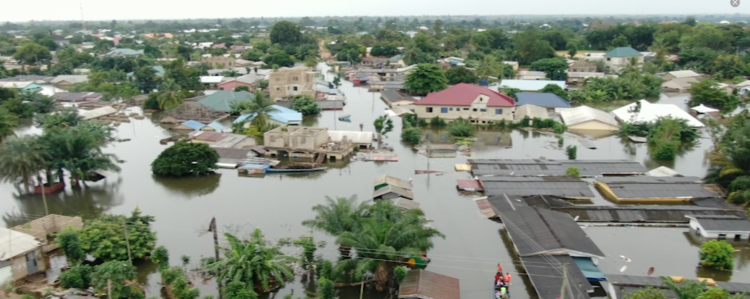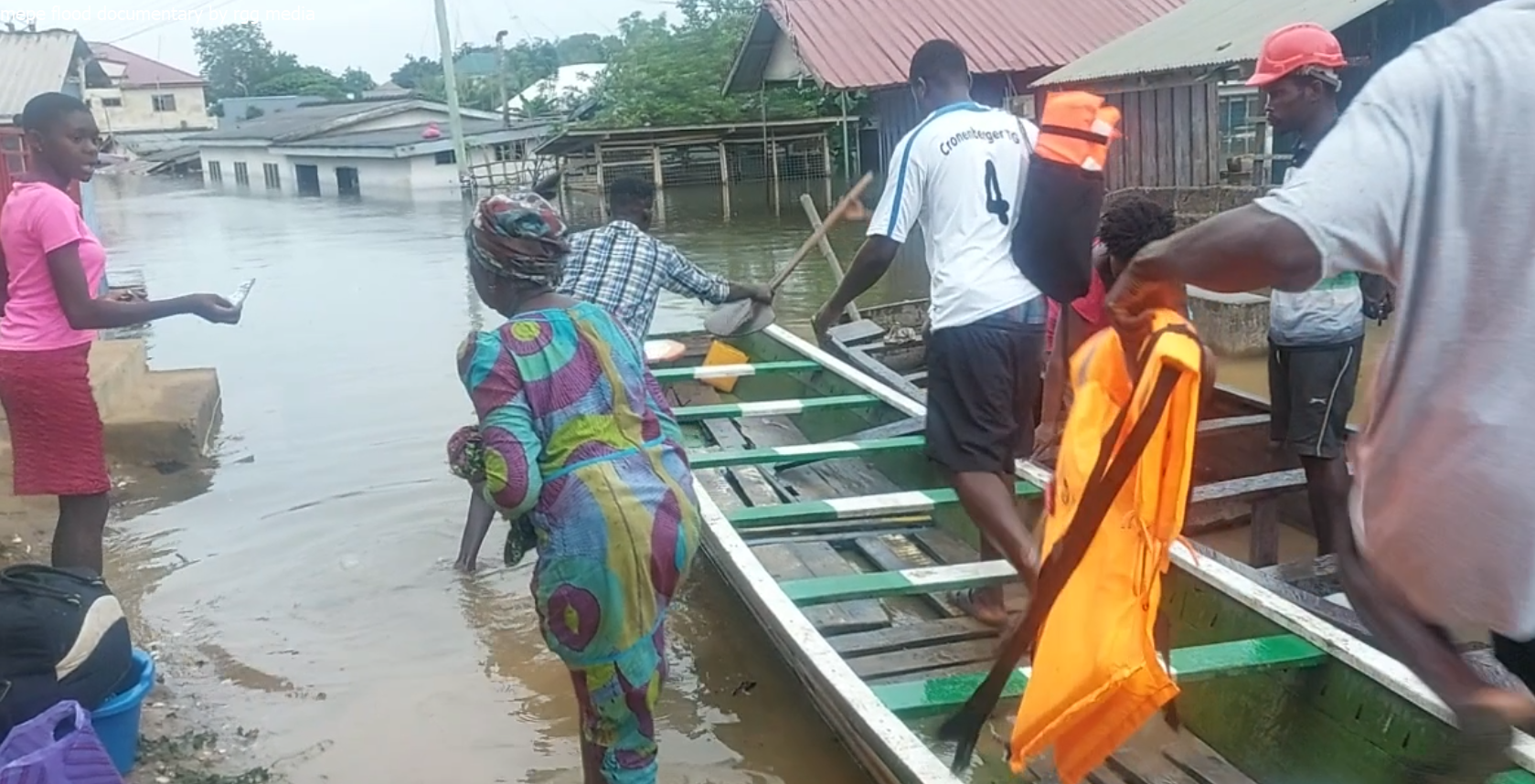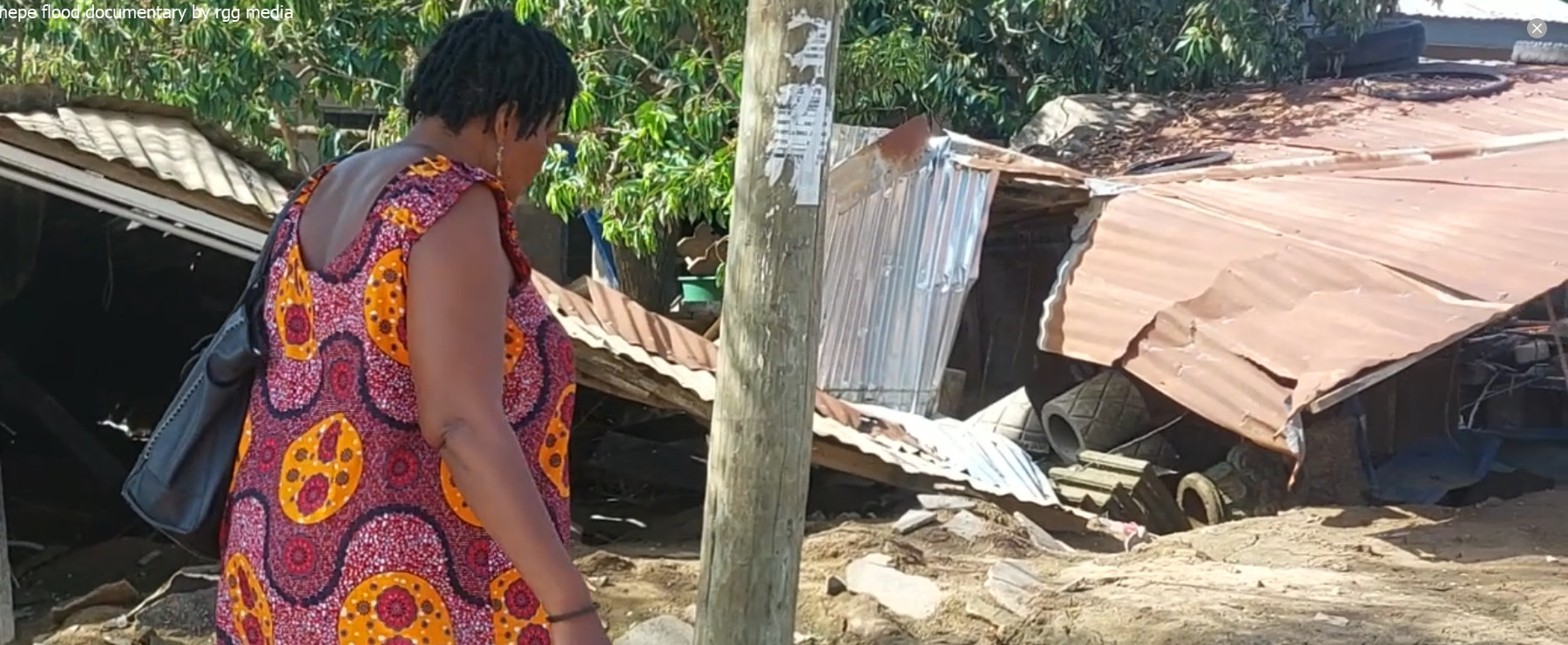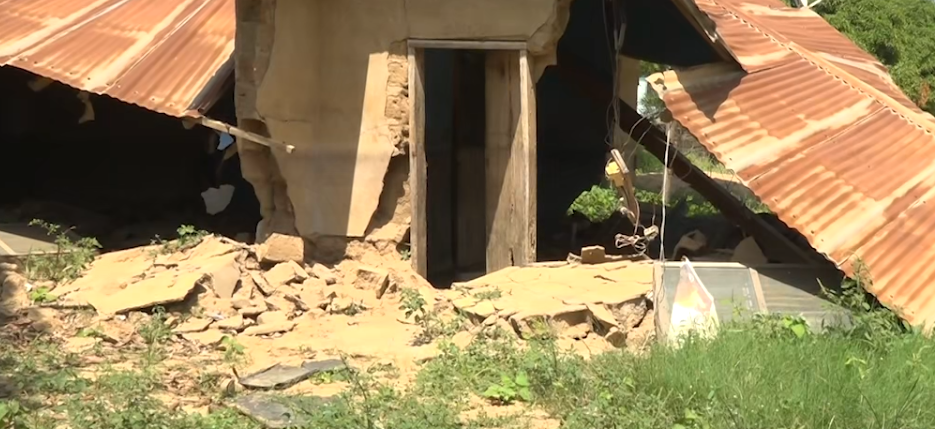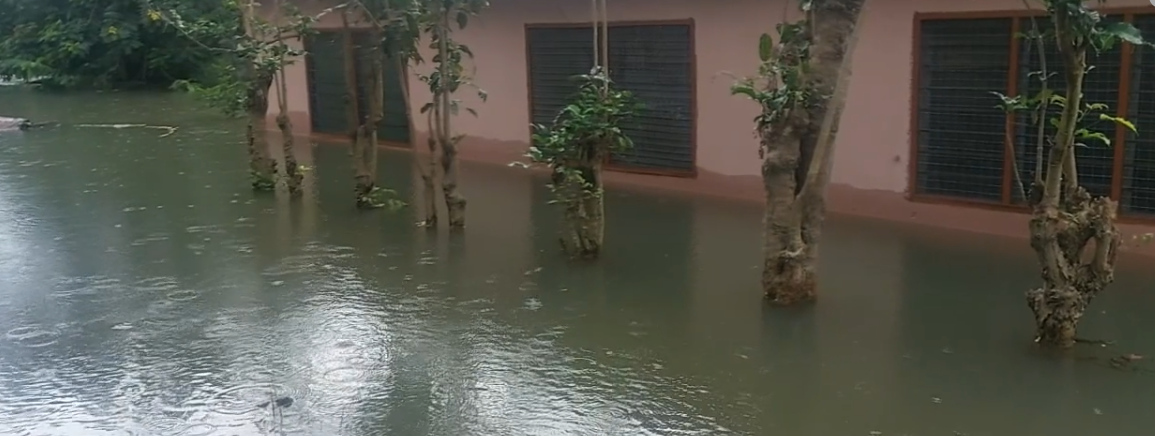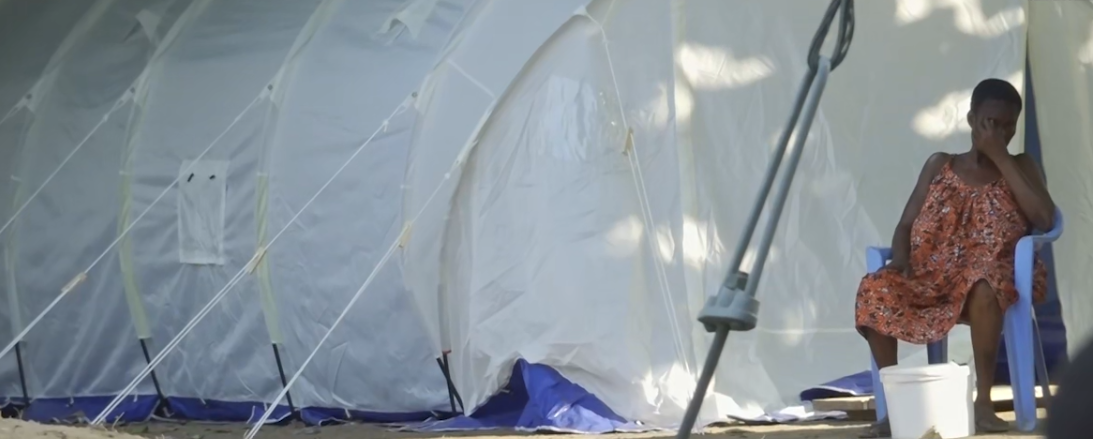By Pearlvis Atsu Kuadey
In the Volta Basin of Ghana, the riverside town of Mepe carries the painful memories of a catastrophe that forever changed the lives of its residents.
On October 11, 2023, water surged through the spillways of the Akosombo and Kpong Dams, turning Mepe into the epicenter of a national disaster. What was once a vibrant town became a haunting landscape of destruction as the flood swept away homes, farmland, and livelihoods, taking with them the community's hope.
Today, the scars remain, serving as a constant reminder of nature’s fury and the slow, difficult journey to recovery.
In March 2024, construction began on new housing for flood victims. However, seven months later, the situation remains bleak. Progress has been minimal, leaving families stranded in temporary shelters and exposed to the harsh heat and rain.
Many people feel forgotten, as the promises made by officials seem to be fading memories rather than solid commitments. “It’s as though no one remembers we are here,” says Amos Borlor, gesturing toward the debris of his flooded home. He adds, “We’re waiting, but what are we waiting for? Where is the help that was promised?”
Beyond the homes and possessions that were swept away, the people of Mepe lost something
intangible yet essential: stability. For generations, the fertile fields surrounding the town supported agriculture and fish farming,mproviding both sustenance and income. Now, those fields lie in ruins, the soil scarred a stark
reminder of the force of the water that once nourished them.
The families who relied on these lands now have no source of income, and their savings have dwindled with each passing day. Resilience, it seems, is being tested to its limits. Dr. Bryan Acheampong, the Minister of Food and Agriculture, announced a plan to rebuild farmlands damaged by flooding. Funded by the World Bank, a $40 million Food Systems Resilience Programme was intended to support farmers affected by the disaster. He made this announcement at a conference on youth in agriculture in Accra on October 18, 2023.
However, one year later, these plans seem distant, more rhetoric than reality, as real assistance remains scarce and farmlands remain desolate. “My cassava, maize, and coconut farm is submerged. Are we expected to start over with nothing? Where are the promises?” asks Confidence Milenudzor, a farmer, his voice weary yet determined.
The assurances given in the flood’s immediate aftermath have, in many cases, proven empty. The initial government response, coordinated by an inter-ministerial committee, offered promises of swift action, new housing, and restoration of farmlands. But reality paints a different picture. Some of the makeshift relief camps in Mepe lack electricity and clean water, leaving residents in a daily struggle to meet their basic needs.
The sense of abandonment runs deep; every unfulfilled promise is a reminder of the wide gulf between political statements and the lives of the people living with this trauma. For the elderly in Mepe, the flood robbed them not only of their homes but of the dignity of a life built over decades.
Seventy-nine-year-old Mr. Akatsa Agbanu had worked tirelessly to construct a home for his family, a legacy meant to stand for generations. But the flood reduced it to ruins. His wife, Mercy, is engulfed in silent grief, her hopes fading under the weight of loss. “What was once a cherished home lies shattered, a mere heap of debris,” reflects Peter Sitor, a young man whose dreams of homeownership now seem distant.
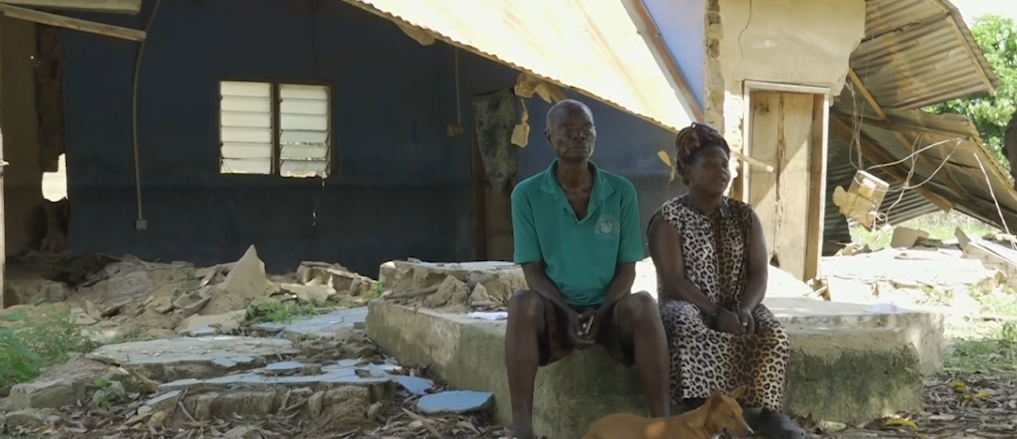
The Manklalo of Mepe, Kwasi Nego IV, emphasizes that this recent flood is not an isolated incident. “Mepe has faced similar challenges in the past,” he states. The first flood occurred in 1963, devastating the homes of their parents and grandparents.

Despite these recurring issues, the Volta River Authority (VRA) has failed to learn from past events to prevent future occurrences.
In response to the disaster, the government, under President Nana Akufo-Addo, made a significant gesture by visiting Mepe, demonstrating their recognition of the situation's seriousness. However, Togbe Nego IV is direct in his assessment: “Solidarity is important, but we need action.”
As families return to their flood-damaged homes, they face not only physical destruction but also the unseen emotional scars left by the disaster.
The walls display grim watermarks, serving as silent witnesses to a traumatic experience. “It’s not just the visible marks on the walls; it’s a feeling we carry every day. The fear and the memories don’t wash away,” Afeamefa Nukpui expresses while surveying the faint lines that streak across her house.
Residents of Mepe are not seeking pity; they demand practical support tools and resources to rebuild their lives, to restore the fields and homes that anchored their existence. “We don’t want charity,” insists Daniel Mawugbe, a fish farmer whose business was destroyed. “Give us the means to work, to rebuild.”
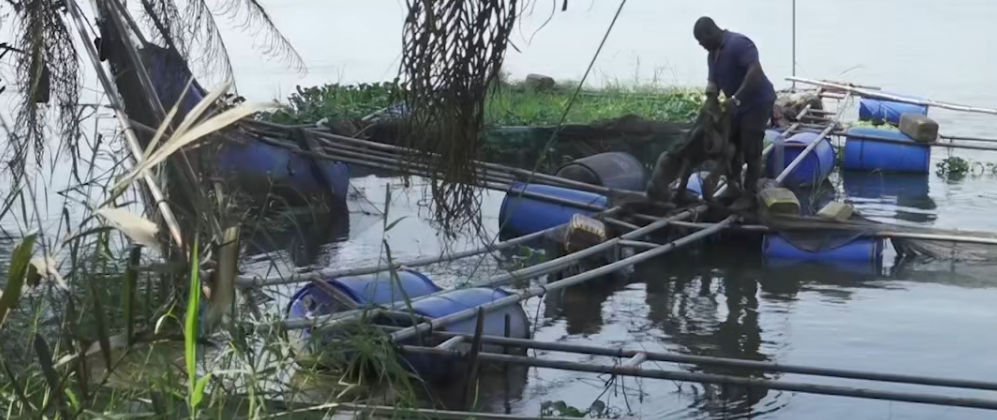
While government and humanitarian organizations have pledged aid, the distance between words and action grows more painful each day. Those who hold power speak of restoration, yet in Mepe, reality is an ongoing struggle for survival. Political visits and sympathetic words offer little comfort when they do not translate into real, measurable change on the ground.
The flood was not only a natural disaster; it exposed vulnerabilities in Ghana’s emergency response systems.
A proactive response could have lessened the destruction, with better planning, communication, and coordination among agencies. Instead, the people of Mepe found themselves unprepared and unsupported in the face of an overwhelming force.
As the anniversary of the flood passes, Mepe’s journey toward recovery is a painful reminder of the need for resilient systems and responsive leadership. The town’s scars are not merely physical they are a record of a community’s struggle to rise from the depths of disaster.
In Mepe, the questions remain: how can we build better? How can we prevent this suffering from happening again? And most pressingly, who will help Mepe rebuild?
The answers will shape the lives of the residents and Ghana’s approach to disaster response in the
years to come. For Mepe, the path forward lies in resilience, unity, and a shared commitment.

